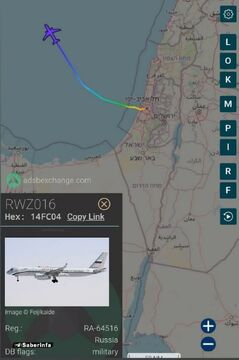Tehran(Bazaar): In any case, the Zangezur Corridor shouldn't be seen as a “red line” since that implies that Iran is against the ninth clause of the Moscow-mediated November 2020 ceasefire, Andrew Korybko tells Bazaar in an exclusive interview.
Noting concerning the claim that Azerbaijan “intends to cut off the land connection between Iran and Armenia”, he explained that nothing will be cut off, and the corridor – whether one calls it Zangezur or whatever else – will be protected by Russia. Upon completion, it'll strengthen regional economic integration
Following is the text of the interview:
Bazaar: Following the recent Karabakh war, the Republic of Azerbaijan intends to cut off the land connection between Iran and Armenia by creating a corridor called "Zange Zor". What is the significance of this corridor for the Republic of Azerbaijan?
Korybko: Some clarifications are in order before answering the question since it's posed in a way that implies counterfactual information. The ninth and final clause of the Moscow-mediated November 2020 ceasefire stipulates the following: “9. All economic and transport connections in the region shall be unblocked. The Republic of Armenia shall guarantee the security of transport connections between the western regions of the Republic of Azerbaijan and the Nakhchivan Autonomous Republic in order to arrange unobstructed movement of persons, vehicles and cargo in both directions.
The Border Guard Service of the Russian Federal Security Service shall be responsible for overseeing the transport connections. As agreed by the Parties, new transport links shall be built to connect the Nakhchivan Autonomous Republic and the western regions of Azerbaijan.” Azerbaijan refers to this as the Zangezur Corridor, a term that Armenia disputes, but there's no denying that all three sides – those two countries and Russia – agreed to build a corridor across that landlocked country.
Importantly, it will also be overseen by the Russian Border Guard Service. This fact contradicts the claim that Azerbaijan “intends to cut off the land connection between Iran and Armenia”. Nothing will be cut off, and the corridor – whether one calls it Zangezur or whatever else – will be protected by Russia. Upon completion, it'll strengthen regional economic integration.
Bazaar: What is the significance of the mentioned corridor for Iran, which considers the severance of land access with Armenia as its red line?
Korybko: With full respect to Iran, it would be a mistake to consider the creation of the Zangezur Corridor as constituting “the severance of land access with Armenia” as explained in the previous answer. This corridor's relevance for Iran is that it'll reduce the trade that Azerbaijan conducts between its western and eastern regions across the northern part of the Islamic Republic, as well as its trade with Turkey across that same route.
Even though it might lead to some economic losses for Iran, the country can still utilize Azerbaijan as a transit state for trading with Russia through the North-South Transport Corridor (NSTC) that those three countries and India are officially a part of, though only if political ties between Baku and Tehran improve.
In any case, the Zangezur Corridor shouldn't be seen as a “red line” since that implies that Iran is against the ninth clause of the Moscow-mediated November 2020 ceasefire. That's not the case though, at least in terms of the country's official policy, so such impressions should be avoided considering the subject's sensitivity, especially for Russia which plans to dispatch its Border Guard Service to protect that corridor.
Bazaar: Iran-Armenia land route is the only land route connecting Iran to the Eurasian Economic Union. This union was also created by Russia. In this regard, what is Russia's position on this corridor and is it willing to cut off Iran's land route to Armenia?
Korybko: Two important points need to be immediately clarified before proceeding. First, Russia doesn't regard the Zangezur Corridor as cutting off any route since Moscow committed to dispatch its Border Guard Services to protect it per the ninth clause of the November 2020 ceasefire that the Kremlin itself helped mediate. And second, while Armenia is indeed a member of the Russian-led Eurasian Economic Union (EAEU), it's not adjacent to Russia and can only trade with it through neighboring Georgia and in theory through Azerbaijan.
Having clarified those two important points, the question can now be answered. Russia's position is that the corridor stipulated in the November 2020 ceasefire is a positive development that must be implemented. It poses no threat to anyone, neither Armenia nor Iran. It could help advance regional economic connectivity and therefore eventually encourage better political ties between all. Russian-Iranian trade can continue across Azerbaijan or the Caspian Sea. It will not be influenced whatsoever at all by the Zangezur Corridor.
Bazaar: Due to the developments in the South Caucasus and the tensions between Iran and the Republic of Azerbaijan, Iran has activated sea routes to reach Russia. Do these issues put the Republic of Azerbaijan in a geopolitically weak position?
Korybko: The recent tensions between Azerbaijan and Iran are unfortunate and mutually detrimental in the sense that they pose a challenge to the NSTC that those two, Russia, and India participate in. This route can still be advanced across the Caspian Sea if Azerbaijani-Iranian relations don't improve and Tehran regards it as politically unacceptable to trade across its northern neighbor's territory. In this sense, Azerbaijan could potentially lose out the most, but these losses only refer to future trade. As it currently stands, Azerbaijan hasn't really lost much of anything since its economy remains strong and diversified.
As for its geostrategic position, Azerbaijan is actually quite strong despite its recent tensions with Iran. It would of course be better if there were no tensions, but their existence doesn't place the country in a weak position.
Relations with Russia are better than at any time since independence, while Turkey is Azerbaijan's ally. The South Caucasus state has also pioneered strategic relations with Pakistan over the past year too following Islamabad's principled supported for Baku during last year's Karabakh War. Furthermore, Azerbaijan is a transit state along the Turkish-Chinese Middle Corridor stretching across the South Caucasus and Central Asia. With these observations in mind, it can be said that Azerbaijan's position remains impressive.
It would be even stronger if relations improved with Iran since the NSTC would be more efficient if it transited through Azerbaijan as initially planned instead of going across the Caspian Sea. Hopefully these two countries can reach a pragmatic understanding to improve their ties with a view towards the mutual benefits inherent in doing so through the NSTC and with respect to restoring stability to the region. The longer that this takes to happen, the more likely it is that third parties like the US will try to exploit their tensions to divide and rule those countries.















نظر شما